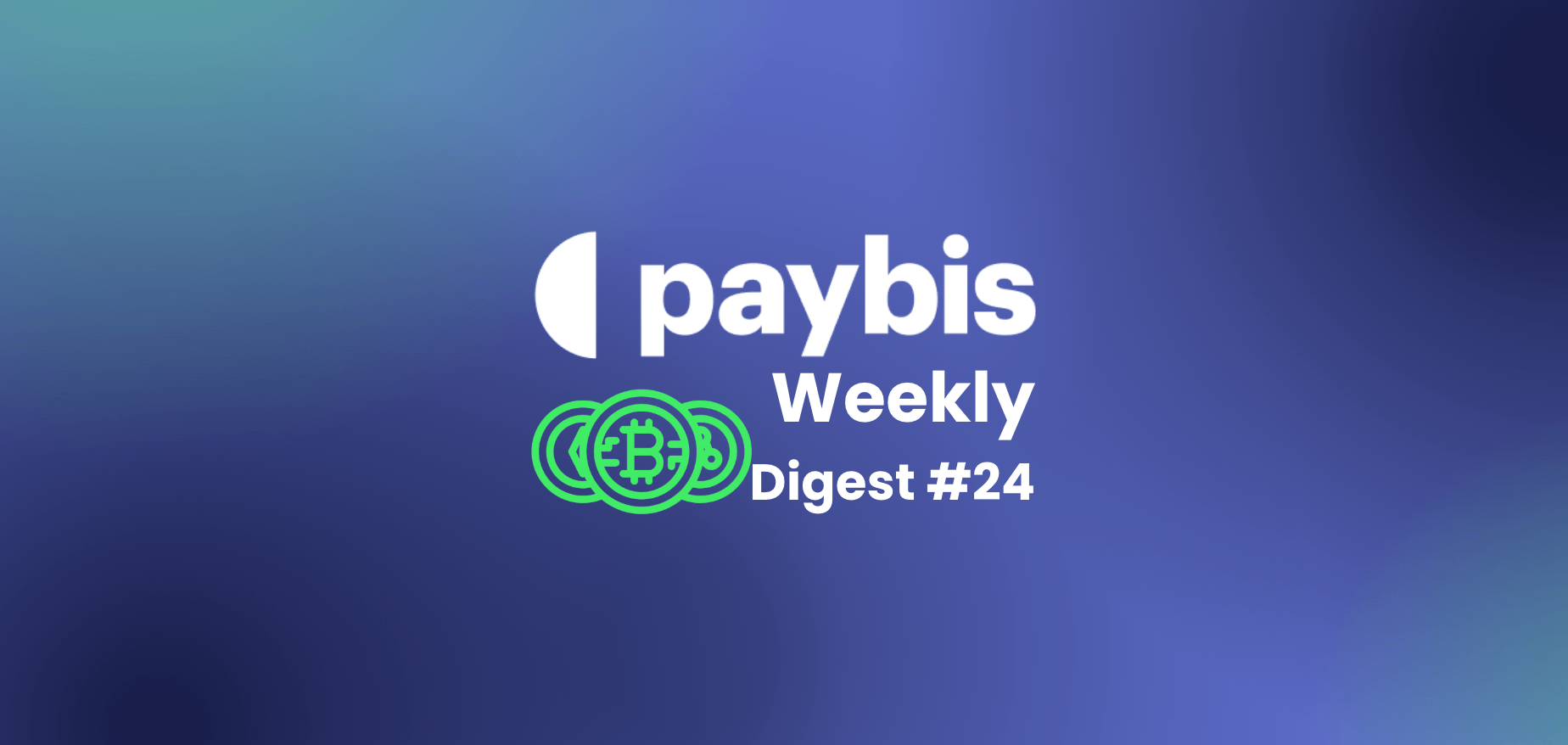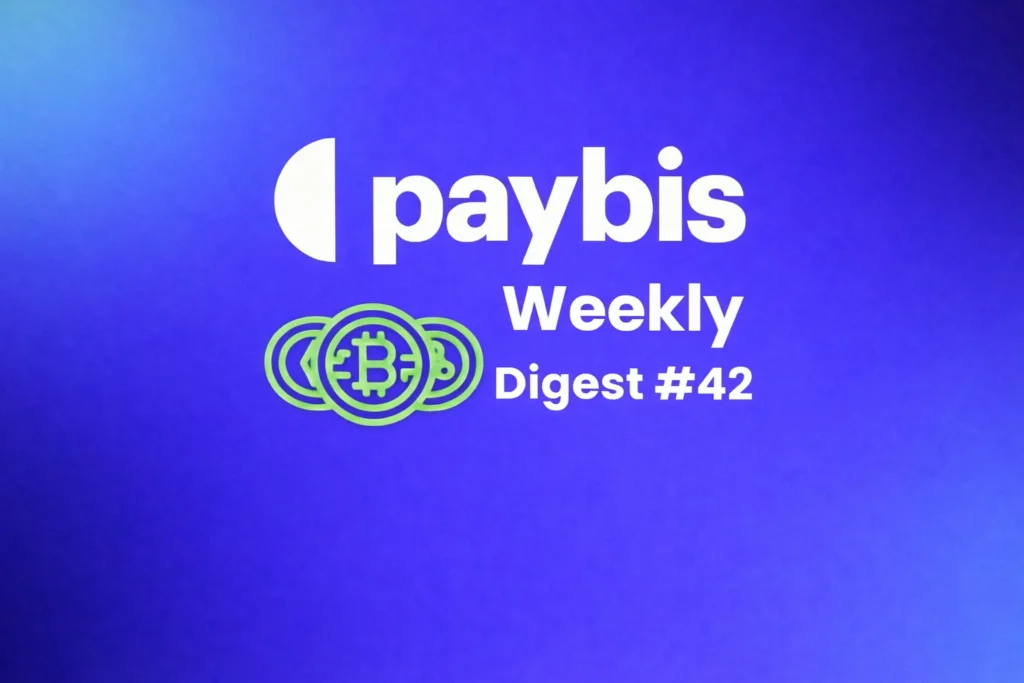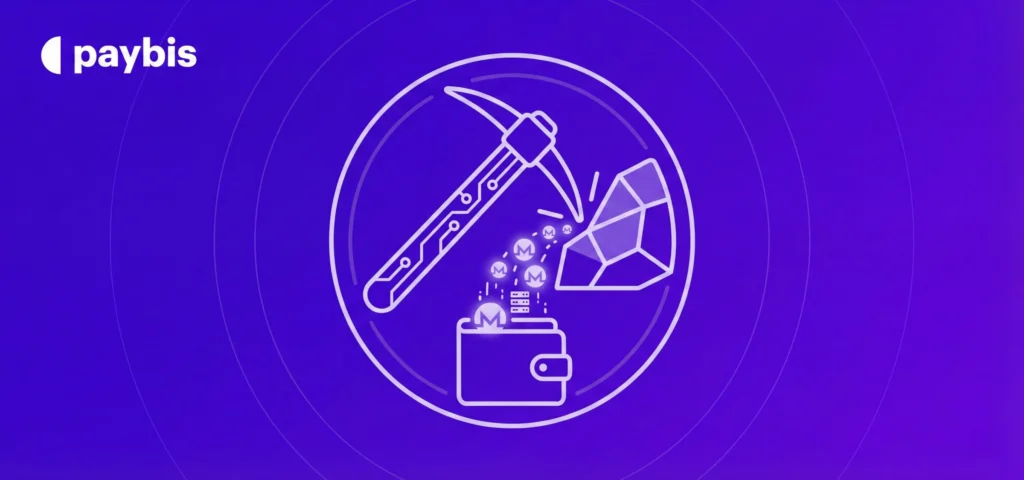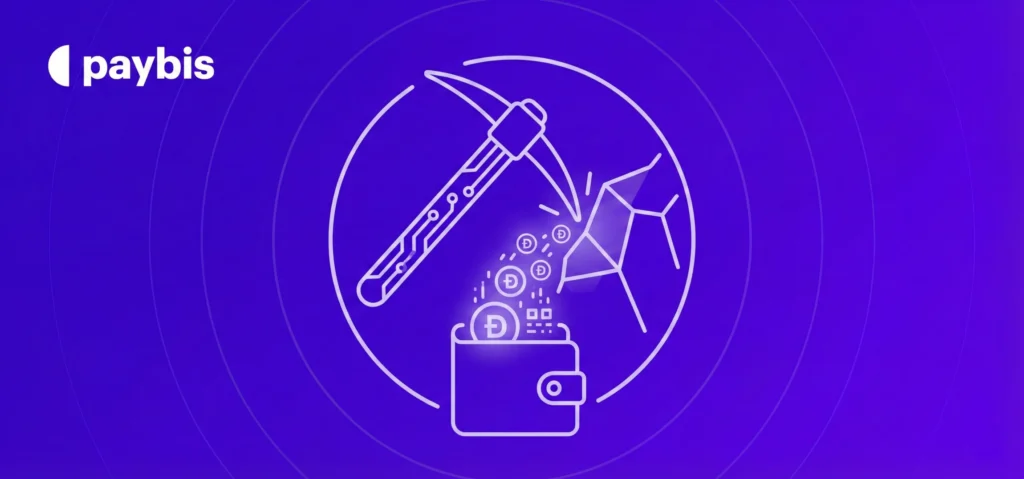This Week in Crypto: ETFs, Hacks, Big Moves & Adoption
The crypto world never sleeps, and this week proves it. From car dealerships in South America embracing stablecoin payments to major institutional moves in the ETF space, there’s been no shortage of action. Let’s break down the top stories you need to know.
If you want to buy, sell, or swap crypto instantly, try Paybis now.
Table of contents
- Toyota, BYD, and Yamaha Dealerships in Bolivia Now Accept USDT
- BitGo Reports $4.19 Billion in Revenue, Eyes IPO
- Poland Launches Its First Bitcoin ETF
- New Gold Protocol Hacked for $2 Million
- Coinbase Reserves Reach $112 Billion
- MetaMask to Launch In-Wallet Perpetuals Trading
- Canada Seizes $40 Million from TradeOgre
- $1.33 Billion in USDC Deposited in One Day
- SEC Approves New ETF Standards
- About Paybis
- Conclusion
Toyota, BYD, and Yamaha Dealerships in Bolivia Now Accept USDT
Car buyers in Bolivia can now pay for Toyota, BYD, and Yamaha vehicles with USDT. This marks one of the biggest pushes for crypto adoption in the country, where dollar shortages have made stablecoins increasingly attractive. Customers can make full or partial payments in Tether, giving them more flexibility. It’s a big step forward for stablecoins as everyday money, showing how crypto is filling gaps where traditional finance struggles.
BitGo Reports $4.19 Billion in Revenue, Eyes IPO
BitGo has reported a stunning $4.19 billion in revenue for the first half of 2025. That’s a 400% increase compared to last year, showing just how fast demand for custody services is growing. The company says it’s preparing for an IPO, which could make it one of the first big crypto custodians to go public. With institutional interest in Bitcoin and Ethereum at an all-time high, BitGo’s timing looks spot-on. This move could further legitimize crypto infrastructure in traditional finance.
Poland Launches Its First Bitcoin ETF
Poland has officially joined the ETF race with the launch of a Bitcoin exchange-traded fund on the Warsaw Stock Exchange. This makes Poland one of the first Eastern European countries to embrace regulated Bitcoin investment products. Investors in the region can now gain exposure to BTC without directly holding the asset. It’s a major win for accessibility, opening the doors for more institutional and retail adoption in Poland. The move also shows that Europe’s ETF momentum is spreading beyond just the big markets.
New Gold Protocol Hacked for $2 Million
A DeFi project called the New Gold protocol suffered a $2 million hack this week. Attackers exploited a smart contract vulnerability, draining funds and causing the project’s native token to crash sharply. Investors were quick to sell, sparking panic across the community. While the team is investigating, it’s another reminder of the risks tied to new DeFi protocols. Security continues to be one of the biggest challenges in decentralized finance.
Coinbase Reserves Reach $112 Billion
Coinbase has announced that its reserves have climbed to $112 billion, the highest in four years. This surge reflects growing user deposits and institutional inflows into the exchange. It also highlights Coinbase’s position as one of the safest and most liquid crypto platforms. With U.S. regulators still tightening oversight, strong reserves are a major trust signal. For Coinbase, it’s both a milestone and a message: they’re ready to handle the next wave of adoption.
MetaMask to Launch In-Wallet Perpetuals Trading
MetaMask is preparing to roll out perpetuals trading directly inside its wallet. The feature will be powered by Hyperliquid, a decentralized perpetuals exchange. This means users will be able to trade advanced derivatives without leaving MetaMask. For DeFi traders, it’s a major upgrade, removing friction and keeping everything under one interface. The move also signals MetaMask’s ambitions to go beyond just being a wallet.
Canada Seizes $40 Million from TradeOgre
Canadian authorities have seized $40 million in crypto from the exchange TradeOgre. Officials allege the platform was being used for money laundering and other illicit activities. The seizure is one of the largest in Canada’s history and highlights growing regulatory pressure on unlicensed exchanges. While investigations are ongoing, users are left questioning the safety of their funds. This case reinforces why transparency and compliance are becoming unavoidable in the industry.
$1.33 Billion in USDC Deposited in One Day
Crypto exchanges just saw their biggest USDC inflow in four years. In the past 24 hours alone, $1.33 billion worth of USDC has been deposited. Analysts say this could be a sign that traders are preparing to buy into crypto markets. Big inflows often signal upcoming volatility, with stablecoins acting as dry powder for new positions. Whether this sparks a rally remains to be seen, but it’s clear traders are gearing up.
SEC Approves New ETF Standards
The SEC has approved new general listing standards for ETFs. This means exchanges now have a clearer and simpler path to listing crypto ETFs. The change reduces red tape and could accelerate the launch of more crypto investment products. For investors, it’s another step toward mainstream accessibility. For the industry, it’s a win that could fuel more institutional adoption in the U.S.
About Paybis
Paybis is a global cryptocurrency exchange platform that provides fast, secure, and user-friendly digital asset transactions. Founded in 2014, the company specializes in fiat-to-crypto and crypto-to-fiat conversions, enabling users to buy, sell, and swap Bitcoin, Ethereum, and other cryptocurrencies using various payment methods, including credit/debit cards, bank transfers, and e-wallets.
If you want to buy, sell, or swap crypto instantly, try Paybis now.
With a strong focus on security and compliance, Paybis is registered with regulatory authorities and implements industry-leading AML/KYC procedures. The platform is known for its intuitive interface, 24/7 customer support, and competitive exchange rates, making it a preferred choice for both beginners and experienced traders.
Conclusion
From Bolivia’s dealerships accepting stablecoins to the SEC making ETF approvals easier, the past week shows crypto’s reach is only expanding. Institutional growth, regulatory progress, and retail adoption are all moving in sync. The message is clear: crypto is no longer on the sidelines, it’s becoming part of everyday finance.
Disclaimer: Don’t invest unless you’re prepared to lose all the money you invest. This is a high‑risk investment and you should not expect to be protected if something goes wrong. Take 2 mins to learn more at: https://go.payb.is/FCA-Info



